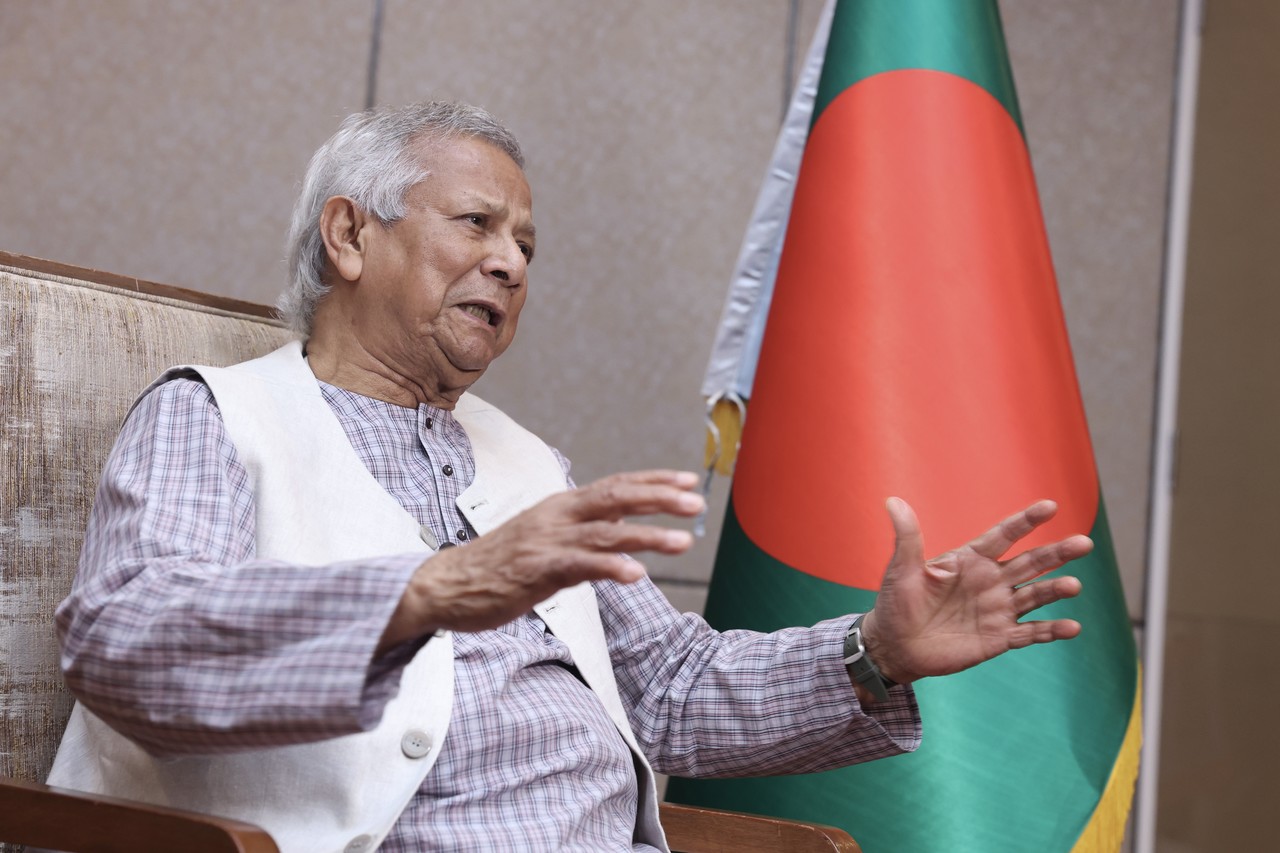Malaysia Can Be 'Beneficiary Window' Linking ASEAN To South Asia Through Bangladesh – Yunus

By Kisho Kumari Sucedaram
KUALA LUMPUR, Aug 14 (Bernama) -- Malaysia can be the “beneficiary window” in greater economic connectivity between ASEAN and the populous South Asia region, with Bangladesh’s central position as a strategic trade, production and investment hub offering immense business opportunities.
In spelling out Dhaka’s importance to both Malaysia and ASEAN, the Chief Adviser to the Government of Bangladesh, Professor Dr Muhammad Yunus, said the populace in Bangladesh and surrounding areas alone is in excess of 170 million, offering a lucrative consumer market. It also offers the potential for regional production through the country’s substantial human resources.
Yunus pointed out that Bangladesh’s location gives it a unique role in facilitating regional trade, particularly for landlocked neighbours such as Bhutan and Nepal, as well as India’s northeastern “Seven Sisters” states, which have no direct access to the ocean. The seven states are Arunachal Pradesh, Assam, Meghalaya, Manipur, Mizoram, Nagaland and Tripura.
“Many of the (economic) facilities could be located in Bangladesh because it is easier to get to the sea. For countries that have no direct access to the sea, we become the route to the world. This means Malaysia can connect its economy to an extended network of countries through Bangladesh,” he told Bernama in an exclusive interview at the end of his three-day official visit to Malaysia from Aug 11 to 13, at the invitation of Prime Minister Anwar Ibrahim.
The interview was led by Bernama Editor-in-Chief Arul Rajoo Durar Raj, together with Editor of International News Service Voon Miaw Ping and Assistant Editor of Bernama Economic Service Kisho Kumari Sucedaram.
During the visit, Yunus met with Anwar, with both leaders reviewing the progress of Malaysia–Bangladesh ties, focusing on trade and investment, labour, education, tourism and defence, as well as regional and international developments of mutual interest. The Nobel Peace Prize laureate also met a few businesses and investors, including Proton Holdings, Sunway Group, Axiata Group Bhd and Khazanah Nasional Bhd.
Yunus, who has headed the Bangladesh interim government since Aug 8, 2024, has cited foreign investments and global trade as crucial components in rebuilding its developing economy.
Elaborating on his country’s advantageous geographical position that enables access to Bhutan, Nepal and India, he said such cooperation could boost the economic growth of Malaysia and Bangladesh, with the latter helping to facilitate the transportation of goods and services. “We welcome cooperation whereby Malaysia can be the beneficiary window, and this is absolutely what we are looking for,” he said.
Explaining Bangladesh’s potential contribution towards the ASEAN economy, he said the member states would be able to gain access to over 170 million people, alongside a substantial workforce ready to support regional production. “It’s not just a market - it’s also a source of human resources. Whoever wants to produce here (in Bangladesh) will find the people they need, from skilled labour to management level,” he added.
He also highlighted the untapped areas of cooperation, including deep-sea fishing with neighbouring Myanmar, which shares ocean waters with Bangladesh, as well as the expansion of cross-border trade in both physical and digital goods. “We have a big ocean (in the Bay of Bengal) right outside, but we have never explored deep-sea fishing. If we work together with Myanmar, it becomes another opportunity for economic growth,” he continued, adding that the larger the connected market, the greater the benefit for all involved.
He also said that infrastructure and transport links through Bangladesh could help neighbouring economies integrate into broader supply chains. Such integration would not only boost trade but also open opportunities for investment, technology sharing and joint ventures in emerging sectors such as maritime industries and digital services, he added.
Bangladesh is already a party to ASEAN’s Treaty of Amity and Cooperation in Southeast Asia (TAC), which provides a formal mechanism to enable closer engagement with the bloc through bilateral and multilateral platforms.
ASEAN and Bangladesh have enjoyed upward economic relations, with two-way trade reaching US$6.16 billion in 2023-24.
Bangladesh, the second-largest economy in South Asia, is a significant player in the Asia-Pacific region, ranking 35th globally in nominal terms and 25th by purchasing power parity.
As for Malaysia, Bangladesh is the second-largest trading partner and export destination in South Asia, with key exports comprising petroleum products, palm oil and chemicals, while imports comprise textiles, footwear, petroleum products and manufactured goods. In 2024, Malaysia-Bangladesh trade rose 5.1 per cent to RM13.35 billion (US$2.92 billion).
-- BERNAMA





